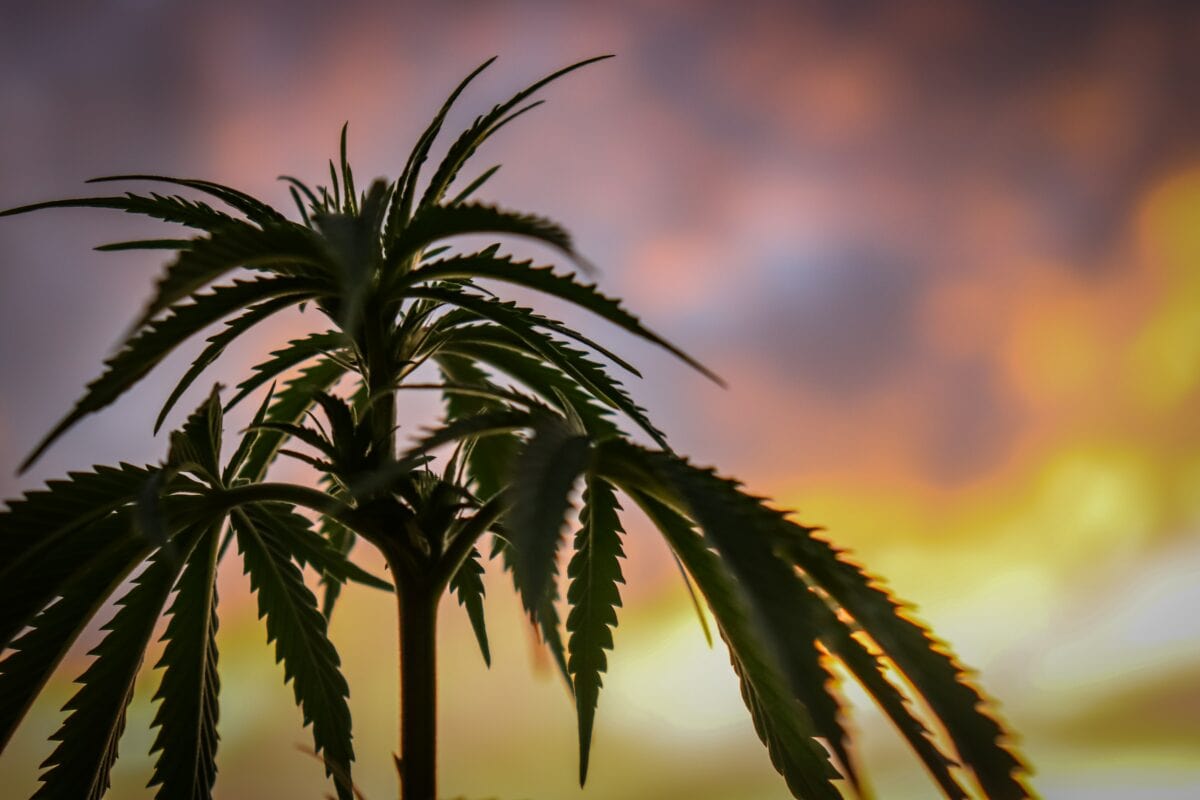Delta-8 tetrahydrocannabinol (delta-8 THC) has become a growing topic of discussion due to its legal controversy and recently issued warning letters by the FDA. The FDA’s growing concerns stem from companies reported to have illegal marketing and drug misbranding. Delta-8 is currently legal in 32 states, however this could change rapidly as states are beginning to regulate or create legislation to prohibit products containing the compound completely. Before we dive into the legal gray area, let’s review what exactly delta-8 THC is.
What is delta-8 THC?
Delta-8 THC is one of the cannabinoids produced naturally by the cannabis plant, but is not found in significant amounts of the cannabis plant. Concentrated amounts of delta-8 THC are typically manufactured from hemp-derived cannabidiol (CBD). However less psychoactive than delta-9 THC, delta-8 THC still has similar psychoactive and intoxicating effects to delta-9 THC, the cannabinoid most popular in the cannabis plant for getting people “high”.
The two compounds are almost identical in structure except for the location of a double bond. The double bond is found on the 8th carbon in delta-8’s structure and the 9th carbon in delta-9. This difference of the double bond location makes delta-8 less potent, meaning that individuals may be able to tolerate more per administration. The effects of delta-8 have been reported by users as mild euphoria, happiness, uplifting feelings, and relief of pain.
Is Delta-8 THC a synthetic cannabinoid?
Because delta-8 THC is not found in significant amounts in cannabis some assume that it is a synthetic cannabinoid, or man made, but it is a natural compound. Delta-8 products do, however, require manual intervention for there to be a consumable amount available. While it is not a synthetic cannabinoid, it is synthetically derived.
Delta-8 THC Federal Legal Standing
Delta-8’s current legal standing is controversial on the federal level. Interpreting it as legal is due to a loophole through The Farm Bill. In 2018, the Farm Bill removed hemp with very small concentrations of THC from the definition of marijuana in the Controlled Substances Act. Hemp is defined as products derived from the cannabis plant containing less than 0.3% of delta-9 THC. Tetrahydrocannabinol’s are listed by the DEA as a Schedule I drug, “except for tetrahydrocannabinols in hemp“. Because of the federally legal status of hemp, manufacturers have derived delta-8 using a conversion process from CBD.
Delta-8 THC State Legal Standing
Many states have begun to regulate delta-8 THC due to the lack of research on its effects and considering it is synthetically derived.
Delta-8 THC is currently prohibited or illegal in these 13 states: Alaska, Colorado, Delaware, Idaho, Iowa, Montana, Nevada, New York, North Dakota, Rhode Island, Vermont, Utah and Washington. The reasoning for the ban of Delta-8 THC products can be summed up by the Colorado Department of Public Health and Environment as “chemically modifying or converting any naturally occurring cannabinoids from industrial hemp is non-compliant with the statutory definition of ‘industrial hemp product’.”
Connecticut and Michigan regulate Delta-8 THC the same way they do recreational cannabis. State authorities in Arizona, California and Mississippi have not released a clear statement on whether delta-8 is legal, partially illegal, or completely illegal.
Finally, Delta-8 THC is currently legal in these 32 states: Alabama, Arkansas, Florida, Georgia, Hawaii, Illinois, Indiana, Kansas, Kentucky, Maine, Maryland, Massachusetts, Minnesota, Missouri, Nebraska, New Hampshire, New Jersey, New Mexico, North Carolina, Ohio, Oklahoma, Oregon, Pennsylvania, South Carolina, South Dakota, Tennessee, Texas, Virginia, West Virginia, Wisconsin, Wyoming, and in Washington D.C.
What does this all mean for the future of Delta-8 THC?
It should come as no surprise that the legality surrounding this newly popularized cannabinoid is confusing and even contradicting in some states. The legal gray area is something the cannabis industry knows intimately and it is suggested to keep an eye on your state’s legislation because that is likely to change before the federal level. Overall, at the Realm of Caring we always advocate for more research so that we can have a better understanding of all aspects of the cannabis plant. If you support the research & education of cannabis, please consider making a donation here or joining our Observational Research Registry (ORR).
Disclaimer
The Realm of Caring Foundation specifically invokes the first amendment rights of freedom of speech and of the press without prejudice. These statements have not been evaluated by the food and drug administration. the products discussed are not intended to diagnose, cure, prevent or treat any disease. Realm of Caring always recommends when and wherever possible that licensed local healthcare professionals be consulted.
The Realm of Caring Foundation is an independent nonprofit with its own governing board. We do not produce or sell cannabinoid products, nor do we receive funds from the sale of other company’s products.



